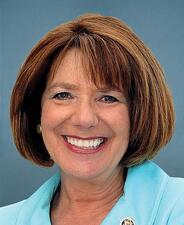Philanthropy and Volunteerism
Britain: Nineteenth and Twentieth Centuries
Since being allowed to resettle in 1656, Jews in Great Britain have established deep community ties throughout their diverse community. Class differences between early Sephardic settlers and the later wave of Ashkenazi immigrants gave rise to numerous Jewish charitable organizations, in which women played a key role.
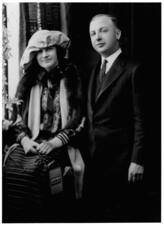
Saidye Rosner Bronfman
Saidye Rosner Bronfman was a first-generation Canadian who used her wealth to benefit numerous Canadian Jewish organizations and philanthropies. Beginning in 1929, she served as the president of Montreal’s Young Women’s Hebrew Association for six years. In 1943 she was recognized by the British Empire for her philanthropic contributions to the war effort.
Shifra Bronznick
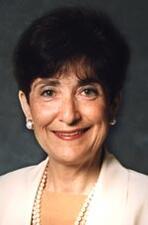
Sandra Brown
Sandra (Sandy) Brown, an outstanding leader of the Toronto Jewish community at the turn of the twenty-first century, is one of the most influential and effective leaders of Toronto Jewry, highly regarded as a person of extraordinarily broad experience, unfailing fairness and commitment, and unusually deep knowledge of education.
Emilie M. Bullowa
As a lawyer and activist, Emilie M. Bullowa devoted her life to justice for the disenfranchised. Her colleagues, as well as many judges, respected her attitude as a woman in a field then dominated by men: She took pride in being a lawyer, rather than in being a female lawyer.
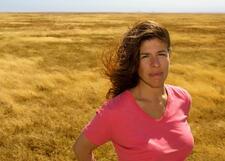
Danielle Butin
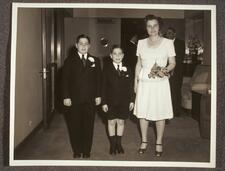
Helen Lehman Buttenwieser
As a lawyer, Helen Lehman Buttenwieser fought to protect children in the foster care system. Throughout her life in the law she served as an important role model for many women attorneys.
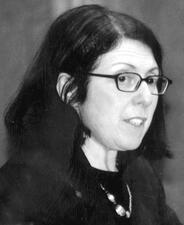
Canada: From Outlaw to Supreme Court Justice, 1738-2005
The positive aspect of the Canadian mosaic has been a strong Jewish community (and other communities) which nurtured traditional ethnic and religious values and benefited from the talent and energy of women and men restrained from participation in the broader society. The negative aspect has included considerable antisemitism and, especially for women, the sometimes stifling narrowness and conservatism of the community which inhibited creative and exceptional people from charting their own individual paths.
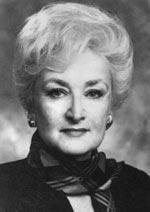
Shoshana S. Cardin
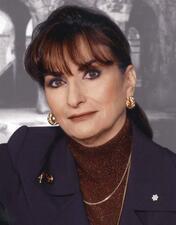
Judy Feld Carr
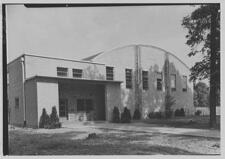
Cedar Knolls School for Girls
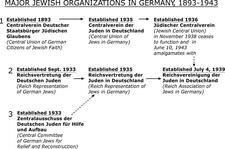
Central Organizations of Jews in Germany (1933-1943)
During the Nazi regime, the political participation of the League of Jewish Women in the affairs of the Jewish self-help organization the Reichsvertretung was initially unwelcomed by male leaders, despite the fact that women attended its meetings. Following the dissolution of the League in 1938, four of its members created their own network in order to present a united front for Jewish women’s interests and continued to participate in important functions of the Reichsvertretung.
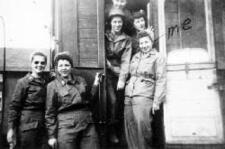
Charlotte Chaney
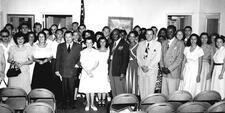
Civil Rights Movement in the United States
As part of the Black-Jewish civil rights alliance and rooted in twentieth-century political, cultural and gender dynamics, Jewish women’s activism took many forms. Jewish women contributed as professionals, through Jewish and women’s organizations, and as foot soldiers in the movement’s nonviolent direct action organizations such as CORE (the Congress of Racial Equality) and SNCC (the Student Nonviolent Coordinating Committee).
Civil War in the United States
During the Civil War, Jewish women performed a range of classic responsibilities brought on by wartime exigencies. Their efforts tended to generate little in the way of documentation, and thus historians studying the involvement of Jewish women in the Civil War and the impact of the war on Jewish women have a sparse body of primary sources upon which to draw.
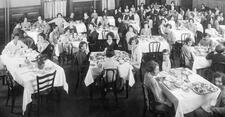
Clara De Hirsch Home for Working Girls
The Clara de Hirsch Home for Working Girls was established in May 1897 to provide housing, occupational training, and community to mostly poor and immigrant young women in New York City.
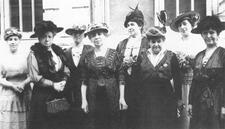
Club Movement in the United States
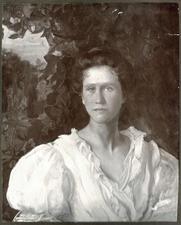
Hannah Floretta Cohen
Hannah Floretta Cohen was the first woman president of Britain’s traditionally male Jewish Board of Guardians for Jewish Poor Relief. She also promoted many other Jewish and non-Jewish charitable organizations to promote women's education, to benefit the sick and the elderly, and to encourage investment in the Palestine Mandate, through her public speaking, financial expertise, and administrative skills.
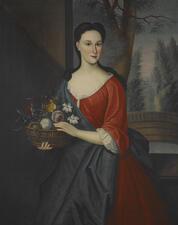
Colonial Period in the United States
Jewish women in colonial America led varied lives, with some occupying traditional roles as mothers and wives and others remaining single. Some ran their own businesses and others worked as servants for Jews with more money. Both in and out of the synagogue, women played a crucial role in early American Jewish communities.
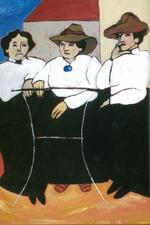
Etta Cone
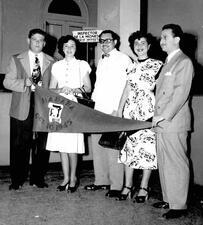
Cuba
Ellen Odetta Cuffe

Jamie Lee Curtis
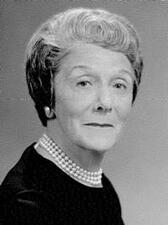
Helen Miller Dalsheimer
Helen Miller Dalsheimer was a leader in the Jewish community, both nationally and in her native Baltimore. She had a distinguished career as a volunteer, helping lead organizations such as the National Federation of Temple Sisterhoods and the Women’s Hospital of Baltimore.
